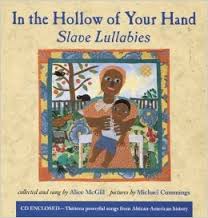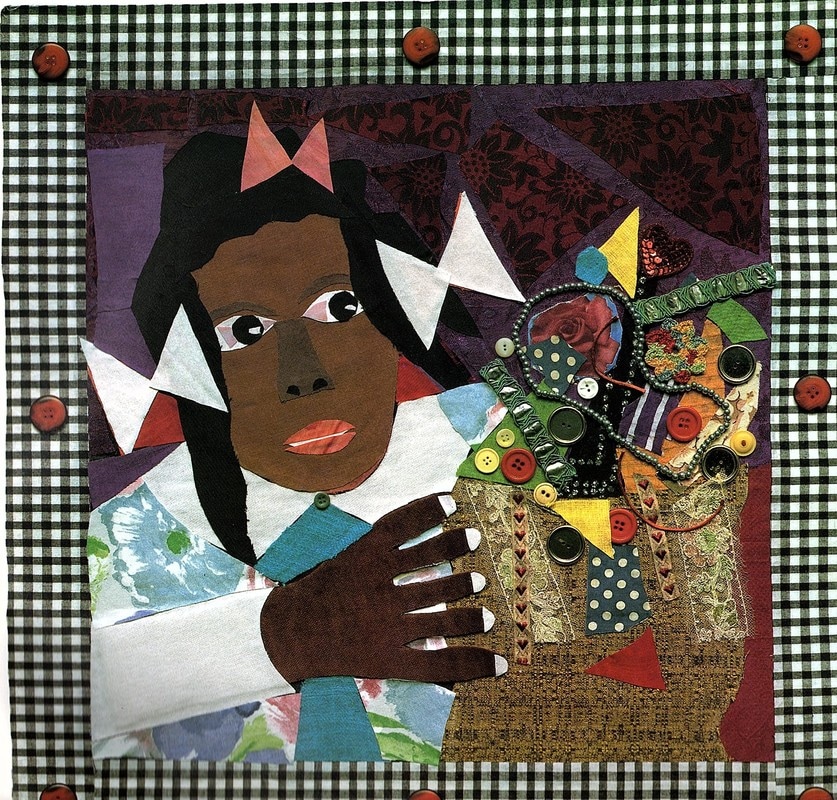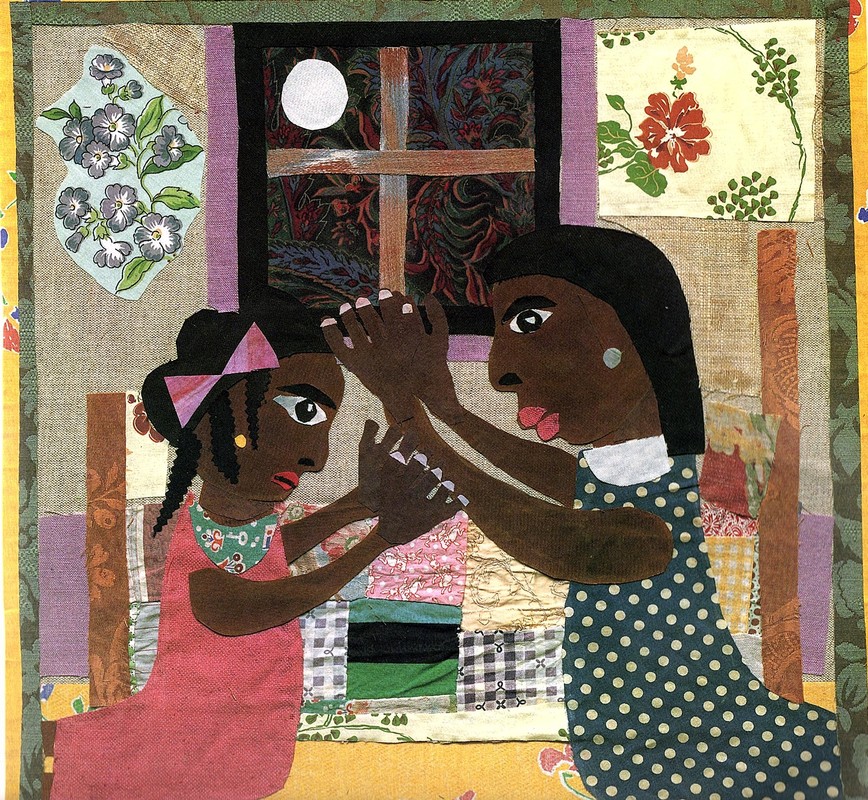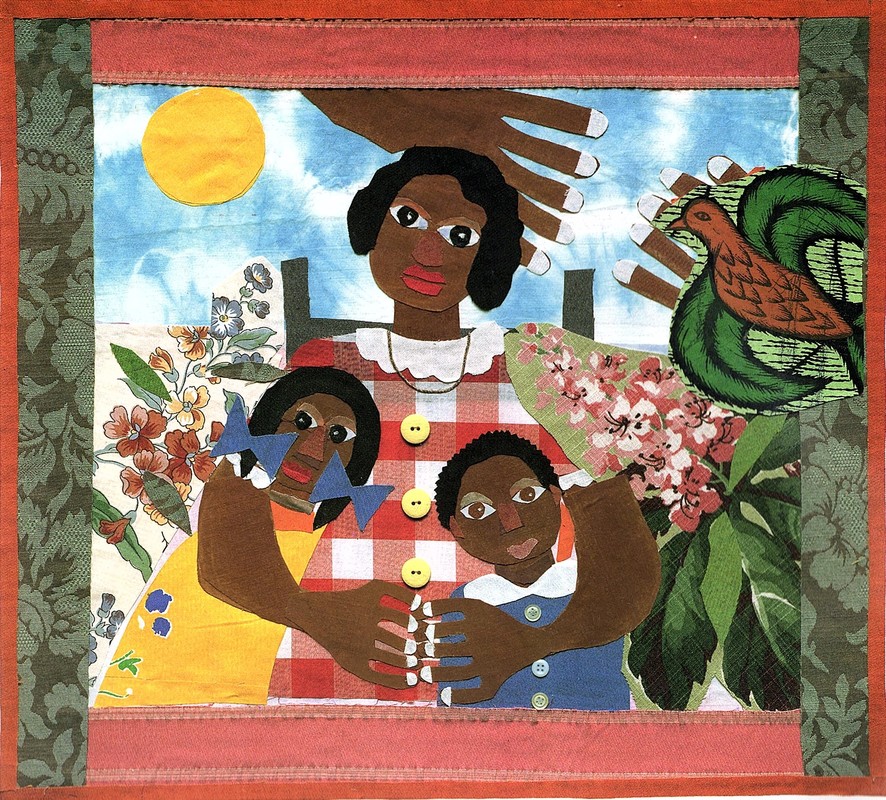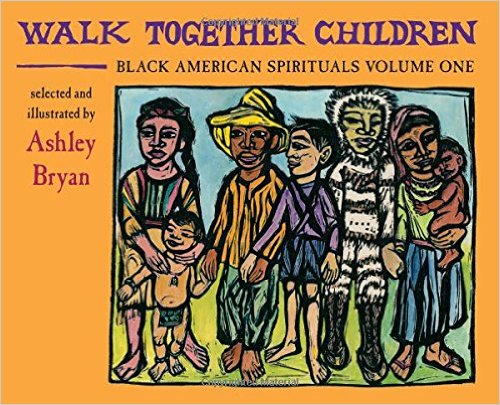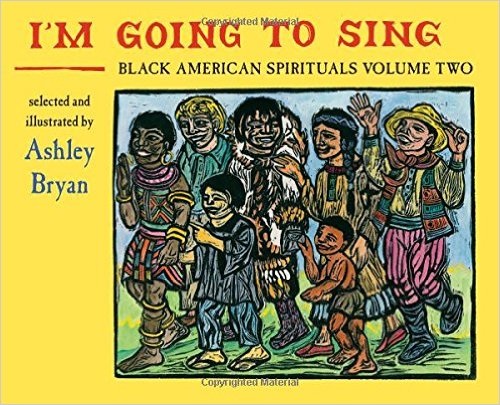By: Jacqueline Briggs Martin
| One Old Favorite The first book I want to mention is not new. In fact it can only be purchased in paperback or used. And sad to say, none of the libraries near me still list it in their catalogs. I hope you will seek it out if you are not familiar with it. The title: In the Hollow of Your Hand Slave Lullabies. (Collected and sung by Allice McGill with fabric illustrations by Michael Cummings; Houghton Mifflin Company, 2000.) These historical lullabies, painstakingly collected, are as moving now as when they were published. McGill accompanies each lullaby with an anecdote from her childhood, or a story she was told as a child. |
| She says in a note to readers, “These lullabies contain the essence of black survival, a philosophy designed to teach history and to counteract the tribulations of slavery with as many joyous occasions as possible.” Her stories do not seem all joyous to me but they do point to resourcefulness and determination. For example, here’s a song called “Every Little Bit: |
“Every little bit, added to what you got, |
| McGill then shares with readers that she learned this song from one of her grandmothers, Molly Alice Pope, who had a trunk full of…lace handkerchiefs, old zippers, and hair combs, buttons, and “all sorts of good things.” And she connects her grandmother’s trunk with the collections put together by mothers during the time of slavery. “They stored items that were dear and might be of use to them later. Little things like a button, pieces of string, and scraps of fabric were all protected treasures. Saving the memories of kisses and hugs was just as important.” Other lullabies are sung to a tune of sorrow. They tell of families being split as children were sold. |
“Mama’s marster gwine sell us tomorrow, |
| Such deeds can never be anything but disturbing. Even today I cannot get my mind around such cruelty. Alice McGill’s mother would not let her children listen to stories of children being sold away and would send them out to play when these stories were told. She tells us “This lullaby was passed down in Mary Carter Smith’s family many years ago in Lowndes County, Alabama. Her great-grandparents were slaves.” |
| That enslaved people could construct songs to lull their babies to sleep is a testimony to their indomitable strength. However they were seen by the oppressors, they guarded their essence, their humanity and they passed it to their children in song. And their children kept it, too, and passed it on. In one of McGill’s stories a World War I survivor recounts to McGill’s father how he recalled “Liddy Lay Low” one night “as gun shells exploded all around his foxhole…From then on this little song gave him courage.” |
Michael Cummings, is a fabric artist who has quilts in the Smithsonian, the American Craft Museum, the Studio Museum in Harlem, and many other museums around the country. The fabric illustrations he did for this book are constructed of scraps, buttons, embroidery, beads, pieces of string. They show us art made of what’s around, just as the songs are art made of what has happened. Florals and checks and stripes show up in the same piece and contribute to the sense of gathering, of saving—saving history, saving the stories of resilience and determination.
It would be a shame if this book were to be forgotten. It should be celebrated.
It would be a shame if this book were to be forgotten. It should be celebrated.
| Two additional song collections of note both by Ashley Bryan: Walk Together Children Black American Spirituals Volume 1 (Alcazar Press, 2002) I’m Going to Sing Black American Spirituals, Volume 2 (Alcazar Press, 2012). These are re-issues of books originally published in 1974 and 1982). |
Please look for Part 2 of Jacqueline Briggs Martin's review next week, on: Like a Bird The Art of the American Slave Song by Cynthia Grady, illustrated by Michelle Wood (Millbrook, 2016). This book features 13 spirituals.0
